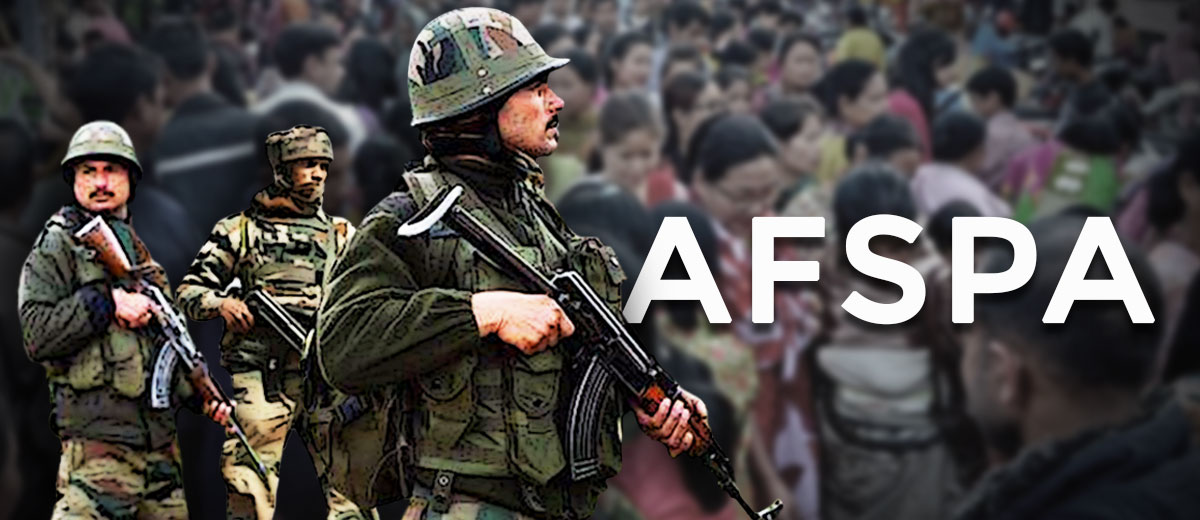45 years ago, the Indian Parliament implemented “AFSPA”, the Armed Forces Special Power Act of 1958. Afspa was implemented on September 1, 1958 in the northeast of India, including Assam , Manipur , Tripura , Meghalaya , Arunachal Pradesh , Mizoram and Nagaland , the group of these states is known as seven sisters. It was implemented to prevent violence in North-Eastern states other than the Indian Union. Later Punjab and Chandigarh also came under this Act in 1997.

Features of AFSPA
- The state or central government has the right to declare any Indian region as “disturb”.
- When differences arise between communities on the basis of differentiation of ethnic, language, religious, regional groups, caste in any area, if there is a trouble, then the central or state government declares that area as “disturb
- Act of 1976, after the declaration of the “disturb” area, there is a special force deployment for at least 3 months.
Rights of AFSPA
- After the warning, if a person breaks the law, then the force can be used by a special force of the Armed Forces until the suspect dies.
- The officer can destroy a shelter or structure from which there is a threat of weapon attack.
- Armed forces can arrest any unidentified person without any warrant.
- The officer can search the person, property, weapon or bullets, without any warrant inside the house and they can use force for it.
- If a person is arrested then he has to be present in neighboring police station with reason for his arrest, why he was arrested
State under AFSPA
- Assam
- Nagaland
- Manipur (excluding municipal area Imphal)
- Arunachal Pradesh (up to 20 kilometers belt of only the tirap, Changlong and Longing district and Assam border)
- Meghalaya (limited to 20 km belt from Assam border)
- Jammu and Kashmir
Advertisement














